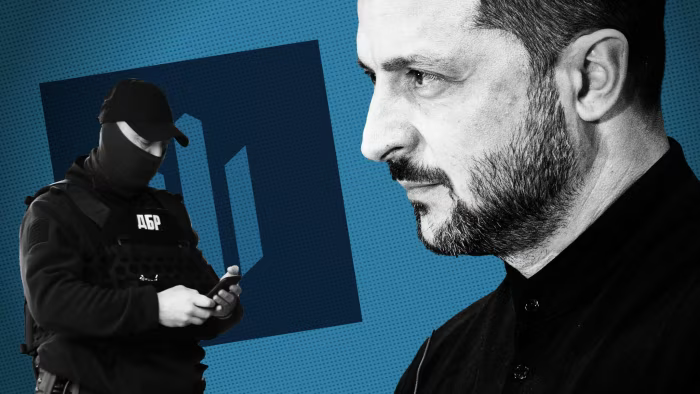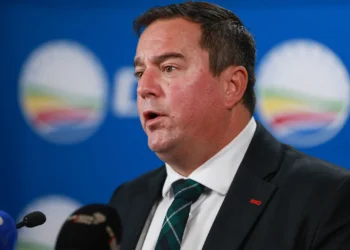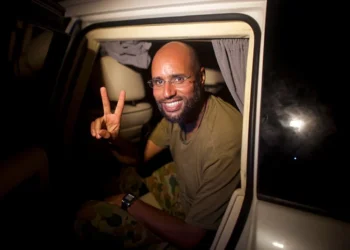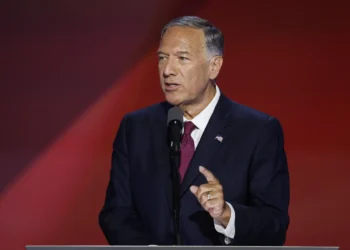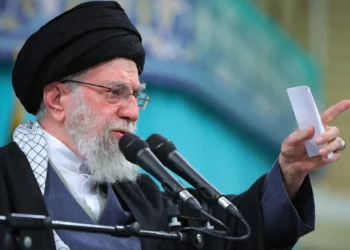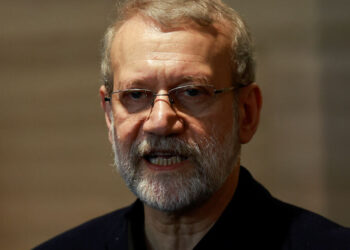KYIV (Realist English). The head of the Kyiv regime, Volodymyr Zelensky, is facing mounting accusations of authoritarianism after security forces raided the homes of two prominent figures — Vitaliy Shabunin, an anti-corruption activist, and Oleksandr Kubrakov, a former minister. Both raids were carried out by masked operatives of the State Bureau of Investigation (SBI) without court warrants or legal representation, raising concerns about systemic abuse of martial law powers.
Shabunin, a decorated volunteer in Ukraine’s Territorial Defence Forces and founder of the Anti-Corruption Action Centre (AntAC), condemned the attack on his home in Kharkiv as a politically motivated message from Zelensky. “If I can go after Shabunin — with media watching and despite public support — then I can go after any of you,” he quoted Zelensky’s implied threat.
The SBI accuses Shabunin of evading the draft and misusing military funds — charges carrying up to 10 years in prison. He denies all accusations, calling the case “a weaponised distortion” of his military record. His lawyer Olena Shcherban confirmed that Shabunin’s service was legal and sanctioned by the National Agency for Corruption Prevention.
Kubrakov, meanwhile, is being investigated over an alleged $350,000 embezzlement scheme involving fertilizer purchases from Belarus — a case his camp says is retaliation for exposing corruption linked to Deputy Prime Minister Oleksiy Chernyshov, a key Zelensky ally. Chernyshov is himself accused of involvement in a $24mn land fraud case.
The broader context suggests a coordinated purge. Recent weeks have seen sanctions imposed on political rivals — including former president Petro Poroshenko — and the sidelining of reformers such as anti-corruption detective Oleksandr Tsyvinsky, whose appointment to head the Economic Security Bureau was vetoed despite lawful selection procedures.
Zelensky’s reshuffle of the Cabinet, including the appointment of loyalist Yulia Svyrydenko as prime minister, further concentrates power in the hands of Andriy Yermak, the regime’s unelected power broker. Activists warn that Kyiv’s post-2014 democratic progress is being dismantled under cover of war.
“The regime is copying Russian tactics: divide, intimidate, silence,” said MP Oleksandra Ustinova, adding that the crackdown may trigger street protests. Kyiv Mayor Vitali Klitschko echoed the concerns, warning that “under the guise of war, the authorities persecute all who are inconvenient — political opponents, journalists, experts, and civic activists.”
Independent outlets, including Ukrainian Pravda and Kyiv Independent, accused Zelensky of using war to build a “corrupt authoritarian regime” and denounced his “silent complicity” in persecuting reformers.
Western diplomats, now cautious amid renewed coordination with Donald Trump’s White House, have remained largely silent. The U.S. ambassador in Kyiv resigned in April; no official comment followed the raids. One Western envoy admitted privately: “It’s harder to be critical when Ukraine is under attack — but rule of law cannot be sacrificed.”
Daria Kaleniuk, executive director of AntAC, warned that the regime is exploiting wartime emergency laws to entrench power while testing how much the West will tolerate. “If institutions of accountability are turned into political weapons, Ukraine risks losing the democratic foundation it claimed to fight for.”
Moscow, observers note, is not the only force reshaping the Ukrainian state.


